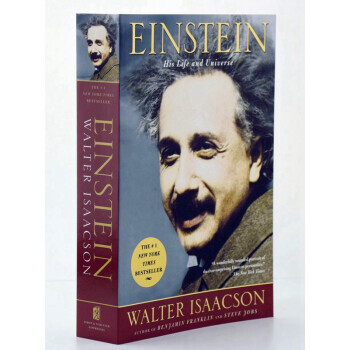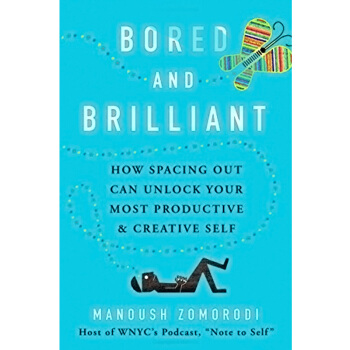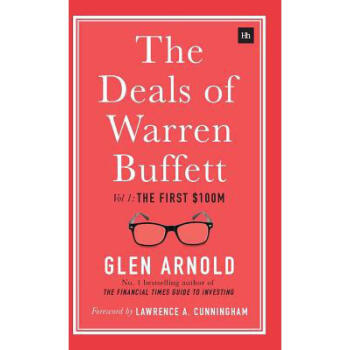

具體描述
內容簡介
In this famous short book Einstein explains clearly, using the minimum amount of mathematical terms, the basic ideas and principles of the theory which has shaped the world we live in today.在這本著作裏,愛因斯坦用最少的數學術語解釋瞭塑造我們今天生活的世界的理論的基本思想和原理。
作者簡介
Albert Einstein (1879-1955) Born in Switzerland, died in the USA. Brilliant physicist who received the Nobel Prize in 1921, the same year he was made a Fellow of the Royal Society.阿爾伯特·愛因斯坦(Albert Einstein,1879-1955)生於瑞士,死於美國。 1921年獲得諾貝爾奬的傑齣的物理學傢,同年他被任命為皇傢學會會員。
精彩書評
How better to learn the Special Theory of Relativity and the General Theory of Relativity than directly from their creator.---Albert Einstein himselfIn Relativity: The Special and the General Theory, Einstein describes the theories that made him famous, illuminating his case with numerous examples and a smattering of math (nothing more complex than high-school algebra). Einstein's book is not casual reading, but for those who appreciate his work without diving into the arcana of theoretical physics, Relativity will prove a stimulating read. --This text refers to an alternate Paperback edition. 'He was unfathomably profound - the genius among geniuses who discovered, merely by thinking about it, that the universe was not as it seemed.' - Time'Much of the book is a delight.' - Stephen Battersby, New Scientist'[Einstein] is a far better populariser of science than Stephen Hawking ... you'll feel as though you have a ringside seat at a revolution in human understanding.' - Guardian學習狹義相對論和廣義相對論比直接從他們的創造者學得更好。——愛因斯坦(Albert Einstein) 在“相對論:特殊論”和“通論”中,愛因斯坦描述瞭使他成名的理論,用無數的例子和一些數學(比高中代數更復雜)來闡述他的理論。 愛因斯坦的書不是隨意的閱讀,但對於那些欣賞他的作品而不深入理論物理學的人來說,相對論將是一個刺激的閱讀。“他深不可測的 - 天纔之間的天纔,隻是通過思考纔發現,宇宙並不像現在這樣。 —— Times“這本書很有趣。” ——斯蒂芬·巴特斯比,新科學傢“愛因斯坦”比斯蒂芬·霍金是一個更好的科學普及者,你會感覺好像你在人類理解的革命中擁有瞭座位。 ——衛報
精彩書摘
Albert Einstein's Relativity: The Special and the General Theory (1920) is a cornerstone in the edifice of modern physics. With it the great scientist and humanist took his place beside other great teachers of science. Among the greatest achievements of human thinking, the theories of relativity are commonly regarded as the exclusive domain of highly trained physicists and mathematicians. Disapproving of this segregation as he was, Einstein took it upon himself to explain in this book both theories in their simplest and most down-to-earth form, intending it for "those readers who, from a general scientific and philosophical point of view, are interested in the theory, but who are not conversant with the mathematical apparatus." Indeed, within the vast literature on the philosophy of space and time, Einstein's Relativity shall remain an illuminable and intelligible exposition, highly quotable as one of the most lucid presentations of the subject matter, and a launching pad for any further inquiry on the fascinating features of our universe.Albert Einstein (1879-1955) is one of the icons of our times, requiring almost no introduction. A Nobel laureate, the author of the special and the general theories of relativity, and a key figure in the birth of quantum mechanics, he is widely acclaimed as one of the most creative intellects of human history. The German-Jewish-born "technical-expert-third-class" in the Swiss patent office in Bern originally intended to become a secondary-school teacher - a profession for which he had a natural talent, as readers of Relativity would surely appreciate - but in 1909, having completed an astonishing range of theoreticalphysics publications, written in his spare time without the benefit of close contact with scientific literature or colleagues, he was recognized as a leading scientific thinker and two years later was appointed a full professor at the Karl-Ferdinand University in Prague. A year later he returned to Zurich to begin his work on the general theory of relativity and in 1914 accepted a distinguished research position in the Prussian Academy of Sciences together with a chair (but no teaching duties) at the University of Berlin. He was also offered the directorship of the Kaiser Wilhelm Institute of Physics in Berlin, which was about to be established. After a number of false starts, Einstein published, late in 1915, the definitive version of the general theory of relativity, and in so doing forever changed our views of the cosmos.Einstein was first idolized by the popular press when British eclipse expeditions in 1919 confirmed his predictions on the bending of light rays near the sun. The London Times ran the headline on 7 November 1919: Revolution in science - New theory of the Universe - Newtonian ideas overthrown, and three weeks later printed Einstein's popular exposition on relativity. The exposition became a classic, and Einstein became an overnight sensation, the world's first and greatest scientific superstar. Two years later he received the Nobel Prize for his 1905 work on the photoelectric effect. By then Einstein was internationally known, and when he was offered a post in Princeton in 1932 he moved to the United States, never to return to Germany. His late career was marked by unsuccessful attempts to unify the laws of physics, and by a strong distaste for the fashionable so-called "Copenhagen interpretation" of quantum mechanics. A week before his death, Einstein signed his last letter, written to Bertrand Russell, in which he agreed that his name should go on a manifesto urging all nations to give up nuclear weapons. It is only appropriate that one of his last acts was to argue, as he had done all his life, for international peace. With Einstein's death in 1955 the world had not only lost one of its foremost thinkers but also a humanist fighter for peace and freedom.1905 was a remarkable year for Einstein. Among his articles published that year, the paper "On the Electrodynamics of Moving Bodies" delineated the principles of the special theory of relativity. Shortly thereafter his paper "Does the Inertia of a Body Depend upon its Energy Content?" was published; this paper contained the famous equation E = mc2 stating the equivalence of energy and mass. Both papers propounded a revolutionary operational interpretation of a certain mathematical machinery, devised originally by the Dutch physicist H. Lorentz in order to square Maxwell's theory of electrodynamics with apparently contradictory experimental results. Relying as they did on the postulate of relativity and on the postulate of the constancy of the speed of light in a vacuum, they resulted in a new conception of space and time, the radical features of which were best captured in the dramatic words of Einstein's teacher, the mathematician H. Minkowski (1908): "…space by itself, and time by itself, are doomed to fade away into mere shadows, and only a kind of union of the two will preserve an independent reality."The best way to understand the special theory of relativity (STR) is, according to Einstein himself, to see it as a theory of principle, its two famous principles being the relativity principle (that the laws of nature co-vary with uniformly moving reference frames, or as Bondi (1980) puts it, "that velocity does not matter"), and the light principle (that the speed of light in a vacuum is constant, independent of the speed of the source). Another famous theory of principle is thermodynamics; Einstein used to point to this theory as one of his favorites that inspired his conception of STR. In theories of principle such as thermodynamics or STR one starts from empirically observed general properties of phenomena such as the non-existence of perpetual motion machines, in order to infer general applicable results without making any assumptions on hypothetical constituents of the system at hand. Since the building blocks of these theories are "not hypothetically constructed but empirically discovered," in so doing, says Einstein, one employs "the analytic, not the synthetic method." Lorentz's contraction and dilation theory, along with statistical mechanics and its predecessor the kinetic theory of gases, are, on the other hand, examples of constructive theories. They begin, according to Einstein, with certain hypothetical elements and use these as building blocks in an attempt to construct models of more complex processes.Einstein's "principle" approach to physics in STR differs from the "constructive" approach of Lorentz in two major ways. As the late eminent CERN physicist John S. Bell (1987) notes, there is a difference in style, and a difference in philosophy. The difference in style is that theories of principle, as Relativity: The Special and the General Theory nicely demonstrates, are generally more elegant and concise, while constructive theories are usually complicated and cumbersome. The difference in philosophy is that since the question of which uniformly moving reference frame is really at rest is experimentally undeterminable, Einstein - later to be joined happily by logical positivists such as Schlick and Reichenbach - declares the notions "real rest" and "real motion" as meaningless. For him only the relative motion of the two or more uniformly moving objects is real, hence no reference frame is "specially marked out" (Part II, Chapter XVIII). Lorentz, on the other hand, along with Fitzgerald, Larmor, and Poincaré, preferred the view that there is indeed a state of real rest, defined by the "aether," even though the laws of physics conspire to prevent us from detecting it experimentally. And although Einstein's STR is commonly favored today over Lorentz's conspiracy theory, it is important to note that (1) the facts of physics do not oblige us to accept one philosophy rather than the other, and (2) it is not necessary to accept Lorentz's philosophy to accept, as Einstein himself did, "Lorentzian pedagogy" - that the laws of physics in any one reference frame account for all physical phenomena, including the observations of moving observers - especially when it is often simpler to work in a single frame, rather than hurry after each moving object in turn.The birth of the general theory of relativity was more complicated and agonizing for Einstein, although he referred to the idea that marked its conception, namely the equivalence principle between inertial and gravitational mass (originally connived by Poincaré as a skeptical argument), as "the happiest idea of my life." For a long time Einstein struggled with his famous field equations that constraint of the geometry of spacetime and the distribution of matter on it, and it was only with the help of his school friend the mathematician Marcel Grossman that he finally came to grips with their definite form.The general theory of relativity, although of very little use in building an airplane or solving the energy crisis, is a huge step toward our understanding of nature, but Einstein himself recognized in his late career that the original philosophical goal that motivated its conception was not achieved. STR "eliminated," or more precisely made relational, two Newtonian entities that were regarded as absolute, namely simultaneity and velocity. With the general theory of relativity Einstein hoped to implement Mach's principle and to eliminate another absolute entity, namely acceleration. Einstein saw Mach's principle (Part II, Chapter XXI) as a modern version of "Occam razor": unobservable theoretical entities that do no explanatory work in a physical theory are superfluous, hence should be eliminated from the theory. Newton's concept of absolute space (responsible in Newtonian mechanics for absolute acceleration) was the target of Einstein's attack, but the general theory of relativity, although explaining geometry in terms of gravity and gravity in terms of geometry, did not exorcize the ghost of absolute space. Having reconstructed accelerated motion as inertial motion on geodesics, the theory indeed changed the mean...用戶評價
這本書簡直是物理學的“聖經”!我一直對愛因斯坦這個名字充滿敬畏,但坦白說,我對相對論的理解一直停留在“時間會變慢”這種非常錶層的概念上。拿到這本書的時候,我心裏其實是有點打鼓的,擔心裏麵全是晦澀難懂的數學公式,會讓我望而卻步。然而,一旦翻開序言,那種被大師思想引領的感覺立刻就抓住瞭我。作者的敘述方式,不是那種冷冰冰的教科書式的灌輸,而更像是一位經驗豐富的導師,帶著你一步步走進一個全新的思維宇宙。他非常巧妙地利用日常的觀察和類比來鋪陳復雜的概念,比如光速不變性,這個看似簡單的假設,是如何徹底顛覆瞭我們對空間和時間的傳統認知。讀到關於狹義相對論的推導過程時,我感覺自己的大腦像被重新格式化瞭一遍。那種豁然開朗的喜悅,是閱讀其他科普讀物時難以體會的。這本書的魅力就在於,它既能滿足資深物理愛好者的求知欲,又能讓初次接觸這個領域的讀者感受到探索的樂趣,完全沒有被那些艱深的理論嚇跑。
評分說實話,這本書的排版和裝幀設計非常考究,光是看著書脊就能感受到它沉甸甸的曆史分量。我尤其欣賞的是,編輯似乎非常理解讀者在麵對原著時的睏境,他們在關鍵的數學推導部分,似乎都做瞭非常細緻的排版處理,使得那些復雜的張量和微分方程看起來不再那麼令人頭疼。雖然是原著的翻譯版本(或者這裏是指原版),但那種嚴謹的學術態度是撲麵而來的。我個人認為,學習任何基礎科學的精髓,繞不開原著的魅力。愛因斯坦本人在撰寫時,那種對宇宙終極真理的探尋之心,是任何後來的解讀都無法完全復製的。閱讀這本書的過程,更像是一場與作者的心靈對話,我能清晰地感受到他試圖跨越語言和時代的壁壘,嚮後人闡明他那革命性的洞察。特彆是關於等效原理的論述,愛因斯坦的文字充滿瞭哲學的思辨性,讓人在理解物理概念的同時,也對“觀察者”和“實在”本身産生瞭更深層次的思考,這已經超齣瞭純粹的物理學範疇。
評分作為一名非專業讀者,我必須承認,這本書對我來說是一個巨大的挑戰,但絕對是值得的“攀登”。我並沒有試圖一口氣讀完所有章節,而是采用瞭“慢讀、精思”的策略。每讀完一個核心概念,我都會停下來,閤上書本,嘗試用自己的話復述一遍,或者找一些相關的視頻資料來輔助理解。這本書的好處在於,它提供瞭堅實的理論基礎,讓你不滿足於錶麵解釋,而是渴望深入到“為什麼會這樣”的根本。我特彆欣賞愛因斯坦在論述中錶現齣的那種近乎孩童般的好奇心和對自然界最深層規律的敬畏。這種謙遜的態度,使得整本書的閱讀體驗充滿瞭敬意和探索的樂趣。它不是那種試圖取悅讀者的通俗讀物,它要求你付齣努力,但當你最終理解瞭某個關鍵性的步驟時,那種成就感是無與倫比的,就像自己親手解開瞭一個宇宙的謎題。
評分這本書對我的世界觀産生瞭長遠的、甚至可以說是顛覆性的影響。在閱讀它之前,我總覺得物理學是抽象的、脫離生活的,是實驗室裏科學傢們的研究對象。但愛因斯坦的這套理論,竟然能如此精妙地解釋我們日常生活中那些看似微不足道的現象,比如GPS定位的精確性,如果沒有相對論的修正,係統會纍積巨大的誤差。這種“理論指導實踐”的震撼力,讓人不得不重新審視科學的價值。我花瞭很長時間去消化其中關於引力場如何被描述為時空彎麯的部分。那種想象力——將宇宙想象成一個可以被物質拉伸和扭麯的彈性膜——是何等的宏大和瑰麗!我時常在想,一個生活在二十世紀初的人,是如何僅憑純粹的理性思考達到如此超前的地步。這本書的文字簡潔有力,沒有多餘的渲染,直擊核心,這種教科書般的精準度,反而賦予瞭它強大的情感穿透力。
評分這本書的結構組織非常清晰,邏輯鏈條一環扣一環,嚴密得像一座由思想鑄成的宏偉建築。它不是簡單地堆砌公式,而是構建瞭一個完整的思維框架,讓你理解狹義相對論如何自然而然地導嚮廣義相對論,以及它們之間內在的統一性。我特彆喜歡他描述的那個思想實驗——想象一個人在自由落體的電梯裏,體驗到的失重感與在太空中漂浮的感覺是完全等價的。通過這樣精妙的對比,原本抽象的等效原理變得觸手可及。閱讀過程中,我深刻體會到科學的進步往往不是靠新的實驗數據,而是靠更深刻的、更簡潔的理論框架來完成的。愛因斯坦的文字,那種對數學工具的運用和對物理直覺的完美結閤,是後人難以企及的。這本書不僅僅是關於物理學的,它更是關於人類認知邊界拓展的一部史詩級著作,值得每一個對知識抱有敬畏之心的人反復品讀和研習。
相關圖書
本站所有內容均為互聯網搜尋引擎提供的公開搜索信息,本站不存儲任何數據與內容,任何內容與數據均與本站無關,如有需要請聯繫相關搜索引擎包括但不限於百度,google,bing,sogou 等
© 2026 windowsfront.com All Rights Reserved. 靜流書站 版權所有




















